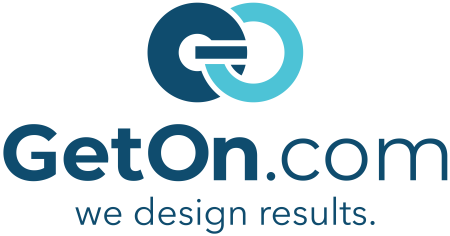Why You Should Use a Digital Marketing Agency to Rank Your Site
When it comes to marketing online, many small to medium sized businesses decide to tackle their digital marketing themselves. But, unfortunately, DIY digital marketing does not yield the same results. Business owners rarely have the time to add another skill to their already busy schedule; understanding the jargon, tools, and strategies involved with digital marketing takes time; it is so much more than posting and pushing content.
Business owners may find that the amount of time it takes to research, develop, and deploy a strategy is not an effective use of skill sets or budget.
And that is why it makes sense to hire a marketing agency to develop an effective marketing strategy, drive it forward, and get the results you want.
What does a Digital Marketing Agency Do?
Digital marketing is the most cost-effective marketing method available to reach the maximum amount of prospective customers, but to make sure it delivers the maximum ROI there are multiple paths within the strategy that must be developed and integrated. A professional digital marketing company hires a team of people who specialize in each area – graphic designers, web developers and programmers, marketing, and copywriters. When you hire a digital agency you have access to an entire team of experts, all working together to deliver your strategy and results. The services they provide include:
- Branding
- Target Market Research
- Competition Analysis
- Keyword Analysis
- Web Development and Design
- Content Strategies
- Search Engine Optimization
- PPC
- Inbound and Outbound Marketing
- Earned Media Strategies
- Social media Content Strategies
- Social Media Advertising Campaigns
- Creative Consultations
- Analysis, Review and Continue Strategy Development
A digital marketer will be able to read the statistics and data from your Google Analytics to understand your market, who they are, where they are, how they search and what content engages them most. From the in-depth information gathered, a highly-effective marketing strategy can be developed that will integrate all the marketing channels mentioned above with a creative content strategy designed specifically to engage your market.
Complicated? It sure is! Now throw in a whole new lexicon of jargon, constant changes to the Google rules (sometimes daily) changes in technology and tools, and cultural trends, and you quickly realize why you should hire a digital agency to handle the digital marketing for your company.
DIY Digital Marketing Can Result in Penalties
Many people who have a basic understanding of SEO and social media may decide to do it themselves; unfortunately, this can cause a lot of problems. Incorporating keywords into copy seems simple enough, but too many keywords will result in heavy penalties from Google. So how many are too many?
That magic number changes according to updated Google algorithms.
Black hat SEO tricks, duplicate content, spammy links, and breaches of copyright regulations can all result in penalties that will remove your site from the search results. The Google bots are programmed to find evidence of these black hat tactics, and social media also has rules of engagement for businesses that differ from personal sites.
Getting New Customers and Conversions
Penalties aside, the main reason a small, medium or large business should use a digital marketing agency is the incredible ROI. Online marketing can reach more people, it can target them by location, interest or language; it can determine where they are on the sales funnel and what kind of products they would like to buy. It can send them information they will find useful, and when they are looking for a new pair of shoes or a house, digital marketing can send them ads on just what they are looking for.
Are digital agencies marketing wizards? Yes, kind of, but relax, your business is in good hands – and our ‘wizarding’ hats are most definitely white.


















